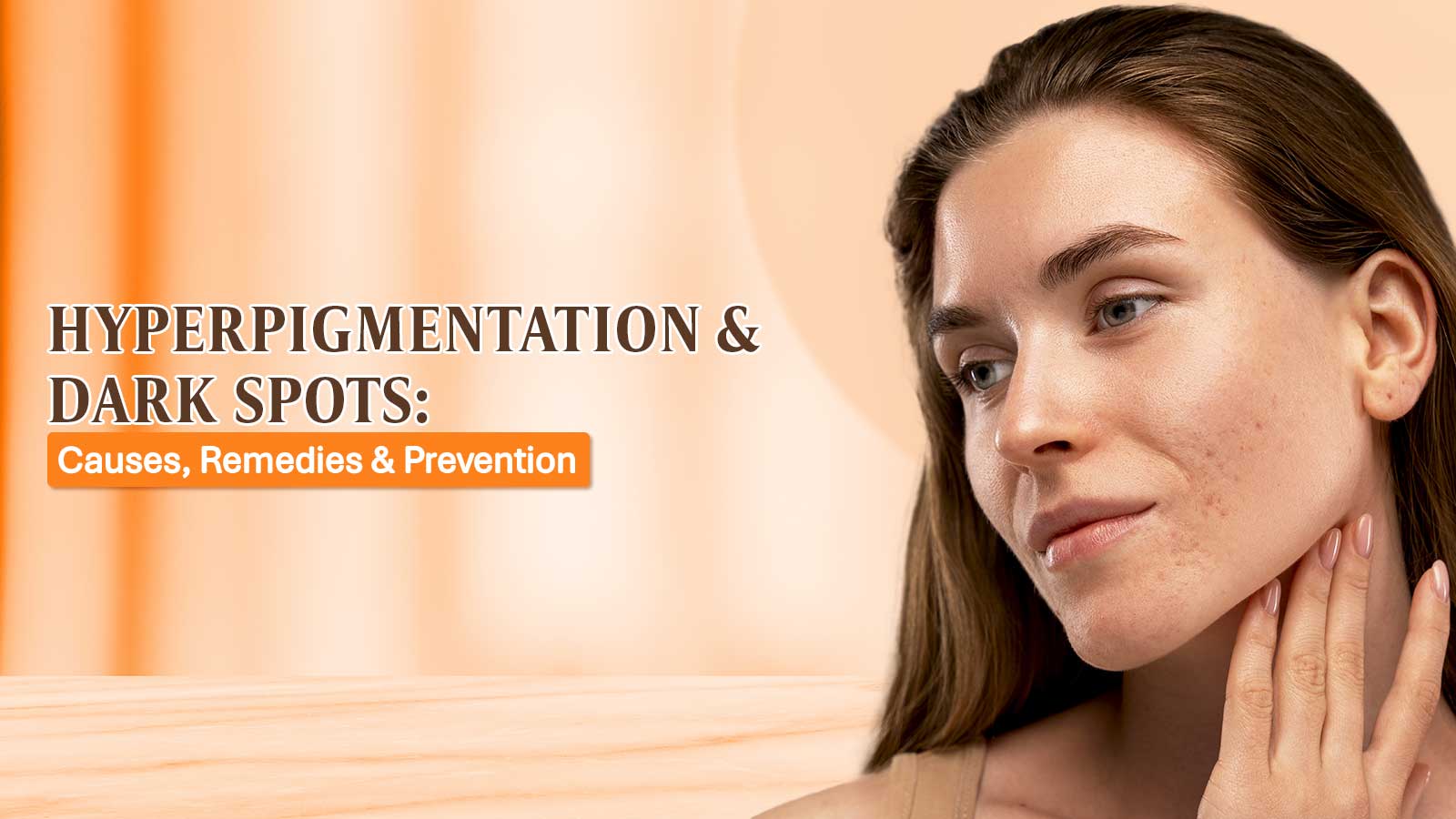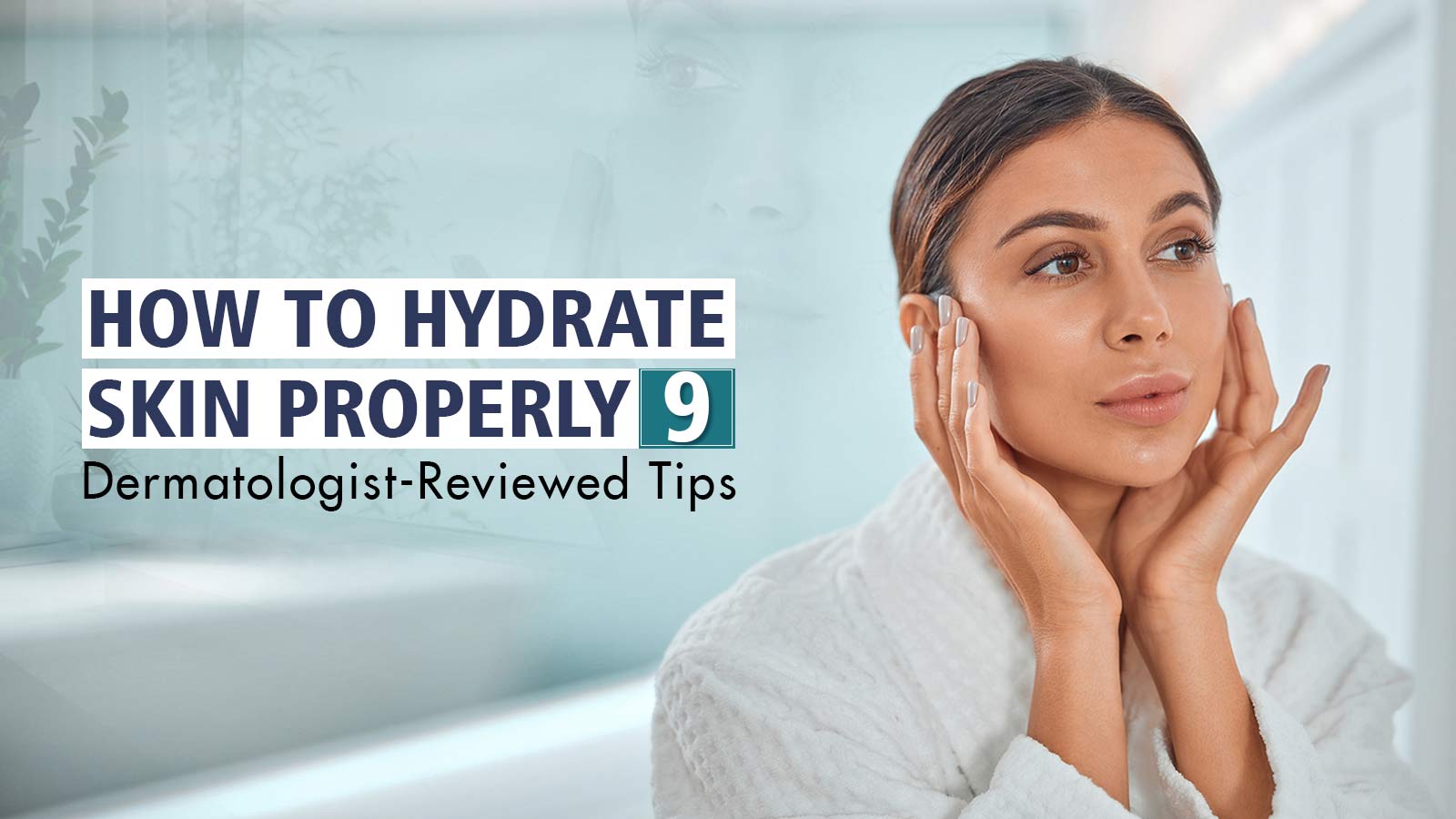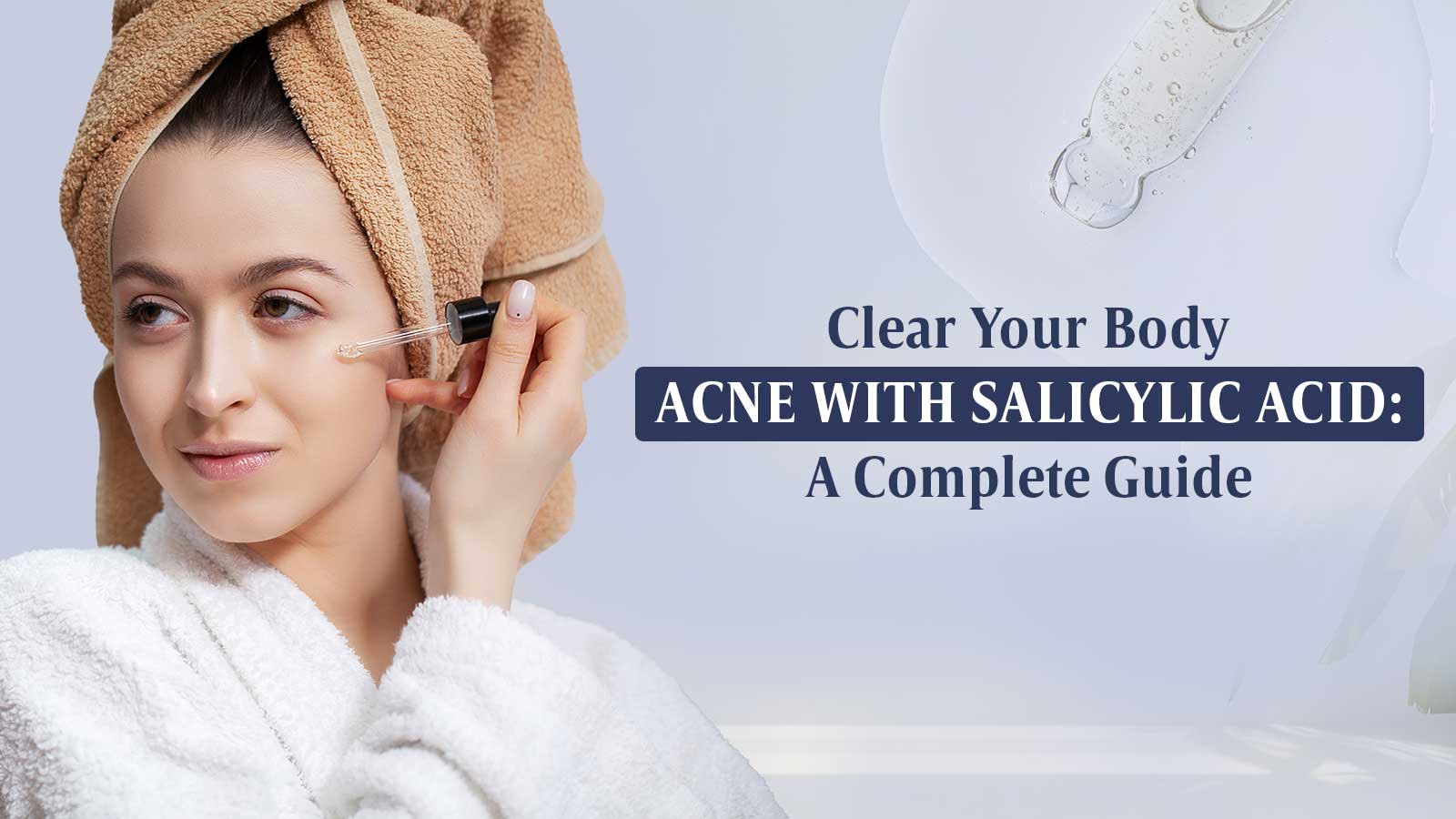
Hyperpigmentation & Dark Spots: Causes, Remedies & Prevention
Dark spots and uneven skin tone are among the most common skin concerns worldwide. While usually harmless, they can affect confidence and make your skin look dull and tired. The good news? With the right knowledge, consistent skincare, and advanced treatments, you can prevent, fade, and manage hyperpigmentation effectively.
What is Hyperpigmentation?
Hyperpigmentation simply means areas of the skin that look darker than the rest. This happens when melanin, the natural pigment that gives skin its color, is produced in excess.
The result: patches or spots that range from light brown to grey or even black, depending on the cause and your skin tone.
Main Causes of Hyperpigmentation
✨ Sun Exposure
Too much UV radiation stimulates extra melanin, leading to sun spots or age spots, especially on the face and hands.
✨ Post-Inflammatory Hyperpigmentation (PIH)
When the skin heals from pimples, cuts, burns, or inflammation, it may leave behind dark spots.
✨ Hormonal Changes (Melasma)
Melasma is triggered by pregnancy, contraceptives, or hormonal therapy and worsens with sun exposure. It usually shows up as symmetrical patches on the cheeks, nose, or forehead.
✨ Medications & Medical Conditions
Some medicines, like certain antibiotics or antimalarials, and rare health conditions can trigger pigmentation.
How to Treat Hyperpigmentation
Step 1: Sun Protection
☀️ This is the non-negotiable step. Sunscreen prevents existing spots from darkening and stops new ones from forming.
- Use a broad-spectrum SPF 30+ sunscreen daily.
- Opt for tinted or mineral sunscreens for added protection.
- Wear hats and sunglasses for extra defense.
Step 2: At-Home Topical Treatments
Look for active ingredients that fade dark spots and even out skin tone:
- Vitamin C → Brightens skin and reduces melanin production.
- Niacinamide → Prevents pigment transfer and strengthens skin barrier.
- Retinol → Speeds up cell turnover to fade discoloration.
- Azelaic Acid & Kojic Acid → Reduce pigmentation while soothing inflammation.
- Alpha Hydroxy Acids (AHAs) → Exfoliate pigmented cells for a clearer tone.
Step 3: Advanced Dermatology Treatments
For stubborn pigmentation, dermatologists may suggest:
- Chemical Peels – Remove outer pigmented layers.
- Laser Therapy / IPL – Break down melanin clusters.
- Microneedling – Stimulates collagen and repairs uneven skin tone.
- Phimedy’s Skincare Solutions for Dark Spots
Phimedy makes advanced skincare simple and accessible with dermat-tested products designed to target pigmentation:
🌿 Phimedy Brightening Vitamin C Serum
Boosts radiance and lightens spots while protecting from sun damage.
✨ Phimedy Spot-Correct Serum (Niacinamide + Alpha Arbutin)
Fades stubborn dark marks and improves skin clarity.
💧 Phimedy Oil-Free Moisturizer
Keeps skin hydrated without clogging pores, essential for acne-prone or spot-prone skin
☀️ Phimedy Daily Sunscreen SPF 50
Shields against UVA, UVB, and visible light — your first line of defense against pigmentation.
👉 Use them as a daily routine:
Cleanse → 2. Treat (Vitamin C AM / Retinol PM) → 3. Moisturize → 4. Protect with Sunscreen.
FAQs on Hyperpigmentation & Dark Spots
- What is the main cause of dark spots?
The biggest culprit is sun exposure, followed by acne scars (PIH) and hormonal changes (melasma). - How long does it take to treat hyperpigmentation?
With consistent skincare, it can take 3–6 months to see visible improvement. Professional treatments may work faster. - Can dark spots go away permanently?
Some, like PIH, can fade completely. Others, like melasma, need ongoing care and sun protection to prevent recurrence. - Is Vitamin C effective for dark spots?
Yes! It brightens, protects from sun damage, and helps fade pigmentation over time. - When should I see a dermatologist?
If a dark spot changes shape, color, or size — or if home remedies don’t show results after months — consult a skin specialist.
Final Word
Hyperpigmentation may be common, but it doesn’t have to be permanent. With the right prevention steps, active ingredients, and Phimedy’s skincare solutions, you can fade dark spots and restore your skin’s natural glow. Remember — sunscreen is your best friend, and consistency is key.







Leave a comment
This site is protected by hCaptcha and the hCaptcha Privacy Policy and Terms of Service apply.